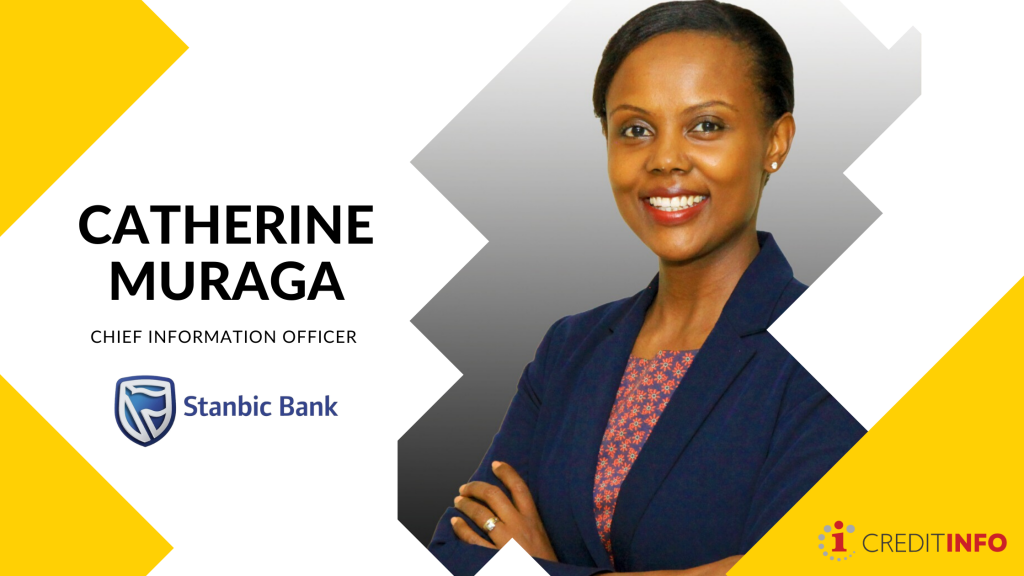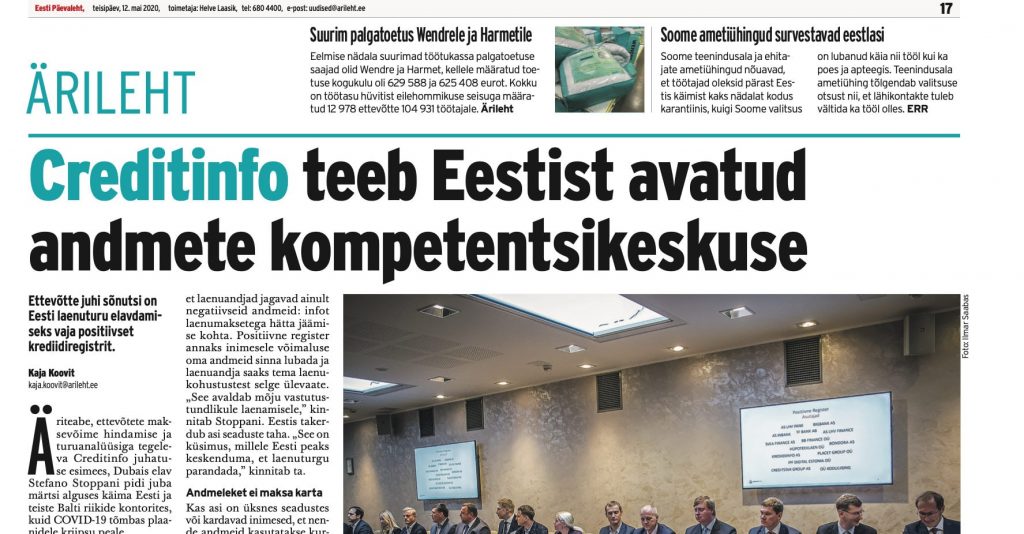Players in Baltic Markets (Latvia, Estonia) and Iceland Measure Risk better, benefitting from Covid-19 Impact Score Developed by Creditinfo.

Credit providers need to understand how COVID crisis affected their counter-parties and customers in order to better manage risk exposure and reduce losses. Current scoring models are unable to fully answer these needs as they were developed on pre-crisis data and need time to adjust to new conditions.
What can Telcos learn from Digital Lenders?

On Tuesday 28th July, Safaricom (the largest mobile provider in Eastern and Central Africa), launched a new service offering consumers the opportunity to buy a 4G-enabled smartphone for as little as 600 KSH (6 USD) per month for nine months, with an initial deposit of 1,000 KSH (10 USD). This is a high-impact initiative for the country, where the average monthly disposable income is just 8,500 KSH (85 USD) according to a 2019 report from the Kenyan National Bureau of Statistics.
The way leading to the ‘haven’ of Startups is grounded by Data Analysis

Lithuania‘s transformation to the startup-friendly country has been successful: last year the first “unicorn” appeared in the market, and the startup ecosystem at present includes over 900 enterprises which have the great potential for business development based on innovations. And yet, the general conception of the startups’ contribution to the country’s economy has remained stereotypical, as it is alleged that these are risky enterprises which rapidly emerge and dissolve, and that they create few workplaces. The latest analyses done by “Creditinfo” and “Startup Lithuania” reject these stereotypes.
Interview with Catherine Muraga, CIO – Stanbic Bank Kenya

We interviewed Catherine Muraga the Chief Information Officer (CIO) at Stanbic Bank Kenya – one of the largest banks in Africa. Catherine is well versed with the Information Technology (IT) landscape having worked in different industry sectors including Manufacturing, Airline and Banking industry. She provides strategic vision and operational IT leadership for the Information Technology Department and controlling all IT functions. We asked her a few questions around COVID-19 and how Stanbic Bank is working around this pandemic.
Kredītinformācijas Birojs – KIB (Credit Information Bureau) unveils new scorecard for consumers

After intense work that lasted the past several months, Kredītinformācijas Birojs finally introduced a new statistical model that forecasts the borrower’s credit risk, last month. The new credit rating predicts the probability that a borrower will default on their credit obligations for more than 60 days in the next 12 months, with the amount of obligation being at least EUR 150.
The evolution of retail credit in the banking sector in UEMOA

Covid – 19 has hit the world with a “double shock”: an unprecedented contraction in supply and demand coupled with a health-economic conundrum. For Africa, and the UEMOA region, the immediate picture is bleak. However, there is hope if the financial sector uses the situation as a trigger for accelerated transformation of lending processes and products, taking the lead from other sub-Saharan markets and levering advantage of the robust financial infrastructure in place.
Proactive Portfolio Management

The world is currently facing unprecedented economic challenges resulting from the COVID-19 pandemic. This was initially reflected in drops in oil prices, followed by the falling stock market and more recently employment levels. Research by the UN suggests global GDP is likely to shrink by around one per cent this year and could contract further if restrictions on economic activity extend beyond the second quarter.
Thanks to Creditinfo, Estonia becomes the competence center of open banking

The Head of the company says a positive credit register is needed for boosting the Estonian credit market. Stefano Stoppani, Dubai-based Chairman of the Board of Creditinfo providing business information, solvency assessment and market analysis, intended to visit its offices in Estonia and the other Baltic countries in the beginning of March, but COVID-19 hampered with these plans. Europe is cautious in regulating both data protection and open banking. The aim of the PSD2 directive is to give third parties – licensed companies – access to a person’s bank account information. This is not done just because, but for providing better service, and obviously the account holder must authorize this. The third-party, for example, the creditor, can then see the income of the person and what the money is spent on. Information is needed to determine if the person is able to pay back the loan (s)he wants.
Creditinfo’s commitment to Data Quality

Data is the new oil, but quality is paramount
In 2017, The Economist ran a cover story portraying data as the new oil, (certainly not last week’s oil), calling it “the world’s most valuable resource”. Data is pervasive and is collected regarding virtually everything that happens. Essentially it comes down to one simple cycle, as described in that 2017 issue: “By collecting more data, a firm has more scope to improve its products, which attracts more users, generating even more data, and so on…” Information is power (for credit bureaus, the power to enhance market lending effectiveness). But there is a catch; because not any kind of data will suffice. In the world of credit, for it to be valuable, data must be complete, high quality, regularly transmitted and verifiable. High-quality data has a deeper, more transformative power. In this industry, data quality and completeness are critical for the successful impact of credit bureaus, and Creditinfo has, since its founding, had a clear focus on this area to support banks, MFIs and other institutions for constant improvement.
New “Creditinfo CO” system reports on debtors’ debtors

Press Release
April 28, 2020. Creditinfo Lithuania today introduced the new debtor reporting system “Creditinfo CO”. The system will give businesses the ability to learn, free of charge and in one place, how many companies are late with payments to their debtors and for what total amount starting from lock down period caused by COVID-19. The aim is to provide businesses with useful information that can help them make decisions on a more informed basis – whether to negotiate with debtors on payment terms, prepare documents for an assignment of debt, or initiate a judicial recovery process. It is also worthwhile checking what length deferments and what size trade credits are being granted to business partners.




